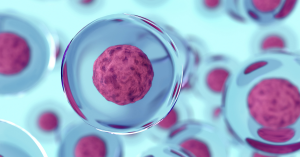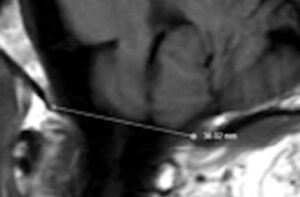At Greenberg Regenerative Medicine in the greater Philadelphia area, we frequently treat patients with Ehlers-Danlos syndrome (EDS)—specifically the hypermobile form known as hEDS. This condition is often misunderstood, yet it can cause widespread pain, joint instability, and significant impacts on daily life. Read more to learn about the causes and symptoms of hEDS, and how our practice focuses on treating the root cause through regenerative medicine to offer patients long-term relief.
What Is hEDS?
Hypermobile Ehlers-Danlos syndrome is a connective tissue disorder primarily caused by weakened collagen. Collagen is the protein that holds together joints and supports tendon and ligament tissue. In patients with hEDS, collagen is looser than normal, which leads to:
● Joint hypermobility
● Increased risk of injury
● Faster tissue breakdown
● Chronic pain
Because the joints lack proper stability, patients may also experience frequent subluxations (partial dislocations) or full joint dislocations. Over time, this instability wears down the joints and often leads to early-onset arthritis—even as early as the teenage years.
Neurological and Autonomic Symptoms of hEDS
Unfortunately, hEDS affects more than the joints. When hEDS causes damage and pain in the neck, lower back, and shoulders, the upper cervical spine becomes unstable. This can put pressure on the brainstem, leading to cervicocranial syndrome. With cervicocranial syndrome, patients may experience symptoms such as:
● Rapid heartrate
● Nausea
● Dizziness
● Lightheadedness (POTS)
● Difficulty tracking objects
● Headaches
● Anxiety
This combination of musculoskeletal and neurological issues can significantly affect day-to-day living. Patients often report fatigue, difficulty concentrating, and interference with work, school, and social activities.
How Is Ehlers-Danlos Syndrome Diagnosed?
Currently, there is no definitive genetic test for hypermobile EDS. Researchers suspect it may be polygenomic, meaning it could be caused by multiple genetic mutations in an individual. Diagnosis is typically based on a physical exam using the Beighton score, which measures joint hypermobility.
Because EDS symptoms overlap with other conditions, it’s important to see a physician experienced in diagnosing complex musculoskeletal conditions. It is also crucial to highlight that not everyone with hypermobility has EDS, as hypermobility can be caused by a multitude of other genetic and developmental factors.
One potential indication of EDS is when a patient has a strong family history of arthritis. Familial arthritis may indicate a congenital collagen building weakness. Here at Greenberg Regenerative Medicine, Dr. Greenberg understands the musculoskeletal similarities between EDS and arthritis, and treats both issues similarly: at their source, with regenerative therapies.
Traditional EDS Treatment vs. Regenerative Medicine
While conventional medicine often manages EDS with pain medications, antidepressants, steroids, nerve blockers, and physical therapy, these approaches only may provide temporary relief. They don’t address the real root problem of the damage and pain—weakened collagen and joint instability.
As a regenerative medicine expert in the greater Philadelphia area, Dr. Greenberg uses various treatment methods to help patients with hEDS and arthritis alike find relief:
● Prolotherapy and Platelet-Rich Plasma (PRP): Strengthen ligaments and tendons by stimulating natural healing.
● Autologous VSELs (Very Small Embryonic-Like Stem Cells): Used for nerve damage and systemic support and administered through IV.
By promoting tissue repair at the cellular level, regenerative medicine can create healing in tissues that would otherwise continue to weaken with age, leading to long-term improvements.
Why Choose Greenberg Regenerative Medicine in the Philadelphia area?
If you’re struggling with Ehlers-Danlos syndrome or chronic joint pain, our team specializes in non-surgical, regenerative solutions that create true healing from the damage’s source. Rather than simply masking symptoms, we focus on strengthening weakened tissues and restoring long-term function.
Living with EDS doesn’t mean living with constant pain. With regenerative medicine, you can reclaim your mobility, energy, and quality of life.
Schedule a consultation with Greenberg Regenerative Medicine in Philadelphia today and learn how our expert and innovative treatments can help you or a loved one living with Ehlers-Danlos syndrome.



